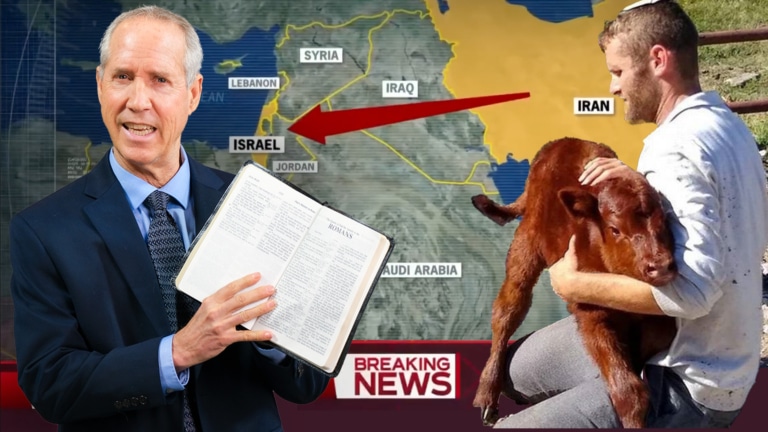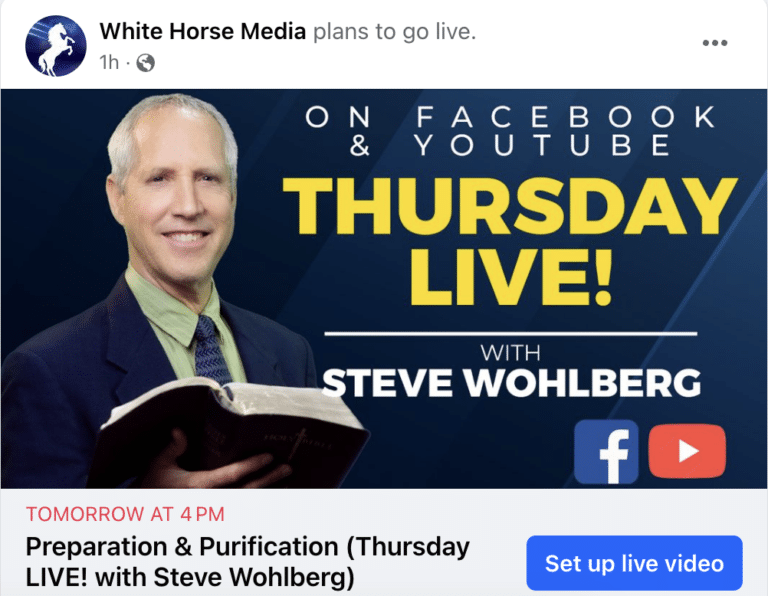In Part 8 of this series (coming next), I will examine the book of Revelation and the role of Islam in prophecy. But before doing this, I want to highlight a controversial promise God originally made to Abram. The Lord told His servant:
I will bless those who bless you,
And I will curse him who curses you;
And in you all the families of the earth shall be blessed (Genesis 12:3, emphasis added)
Evangelical scholars today often apply this verse exclusively to Israel. “Those who bless Israel will be blessed,” many contend, “and those who curse Israel will be cursed.” Yet notice this: First, the word “Israel” is absent from this text. Second, its main point is that through Abraham ” all the families of the earth shall be blessed.” Third, this prediction is both Messianic and inclusive, that is, it predicts a special blessing coming through Abraham’s genealogical line to “all the families of the earth.” Fourth, that blessing comes through Jesus Christ, the Promised One.
In other words, God’s main purpose in calling Abraham, in miraculously bringing forth Isaac, in raising up Jacob and his sons, in delivering the Hebrew nation from cruel Egyptian slavery, and in mercifully preserving the Israelites throughout Old Testament history – in spite of their many sins – was to eventually bring forth through their line His royal Messiah, Jesus Christ, who came to bless everyone with His gift of salvation.
Matthew Henry comments:
In thee shall all the families of the earth be blessed. This was the promise that crowned all the rest; for it points at the Messiah, in whom all the promises are yea and amen.
The entire Bible points forward to this Messiah. From Abel’s first offering of a lamb outside the gates of Eden (see Gen. 4:4), to the Passover blood sprinkled on Egyptian doors (see Ex. 12:13), to the slaughter of animals for over a thousand years on Jewish altars – every sacrifice pointed forward to the Supreme Sacrifice, to the Living Water, to Heaven’s Lamb, and to salvation through faith in Him alone. Truly, salvation is “the gift of God, not of works, lest any man should boast” (Ephesians 2:8), and it is available to the entire world (see John 3:16).
Before advancing to Revelation, let’s take one more look at God’s original “count the stars…so shall your descendants be” promise to Abram in Genesis 15:5. As stated before, from a strictly genealogical perspective, Abraham does have lots of great-great-great-great-great-great grandchildren through both Ishmael and Isaac, which include both Jews and Arabs. Yet in the New Testament, Paul clarified a truth of deep significance when he wrote: “Therefore know that only those who are of faith are sons of Abraham” (Galatians 3:7, emphasis added). Here Paul moves beyond rigid genealogical lineage, and describes what might be called “faith lineage.” “Only those who are of faith,” the inspired writer declared, “are [true] sons of Abraham.”
In other words, from God’s perspective, only those who have faith in Him and trust His Word, like Abraham did, are the patriarch’s real children. Because of this Faith Factor, it is entirely possible for Abraham to be the spiritual father of believing Jews, believing Arabs, and anyone else who loses confidence in human flesh, renounces sin, and trusts the Savior. Those who do so are all God’s shiny “stars” amidst the world’s dark night, the sons of Abraham.
Thus in the ultimate sense, the God of the Bible is not exclusive, but embracing. He created us all, and loves us all. And because of His compassionate heart, His goal has always been that Abraham, Sarah, Hagar, Isaac, Ishmael, and as many of their descendants as possible would eventually sit down at the same table in His Heavenly Kingdom as brothers and sisters in Jesus Christ.
“Not if I can help it,” snarls Lucifer.
Sadly, throughout history, the Devil has been amazingly successful in his warfare against God’s plans. He started with the subtle whispering of a snake in Eden, which led Adam and Eve into sin (see Gen. 3:1-5). In Noah’s day he corrupted an entire world until it needed to be cleansed by a flood. Traveling beyond Abraham’s time, the Old Testament plainly teaches that he also infected Isaac’s line – the people of Israel – with apostasy and idolatry (see Exodus 32, etc). Understandably, his sophistry has permeated Ishmael’s descendants, too.
In New Testament times, Satan’s insidious lies even infiltrated the professed Church of Jesus Christ, fulfilling Paul’s cryptic prediction that many would “depart from the faith, giving heed to seducing spirits and doctrines of demons” (1 Timothy 4:1).
In graphic language, the book of Revelation not only describes this very apostasy, but also some unusual providential efforts to counteract it. Strangely enough, these efforts included the fierce armies of an Arab named Mohammed, a man who unquestionably exhibited the wild side of Ishmael.
The 9th chapter of the book of Revelation predicts:
Then the fifth angel sounded: And I saw a star fallen from heaven to the earth. To him was given the key to the bottomless pit. And he opened the bottomless pit, and smoke arose out of the pit like the smoke of a great furnace. So the sun and the air were darkened because of the smoke of the pit. Then out of the smoke locusts came upon the earth. And to them was given power, as the scorpions of the earth have power… The shape of the locusts was like horses prepared for battle. On their heads were crowns of something like gold, and their faces were like the faces of men. They had hair like women’s hair, and their teeth were like lions’ teeth. And they had breastplates like breastplates of iron, and the sound of their wings was like the sound of chariots with many horses running into battle (Revelation 9:1-3, 7-9).
Locusts and scorpions are desert creatures. Does this mysterious prophecy have anything to do with Mohammed and his desert warriors?
You’ll find out in Part 8!
To be continued…






